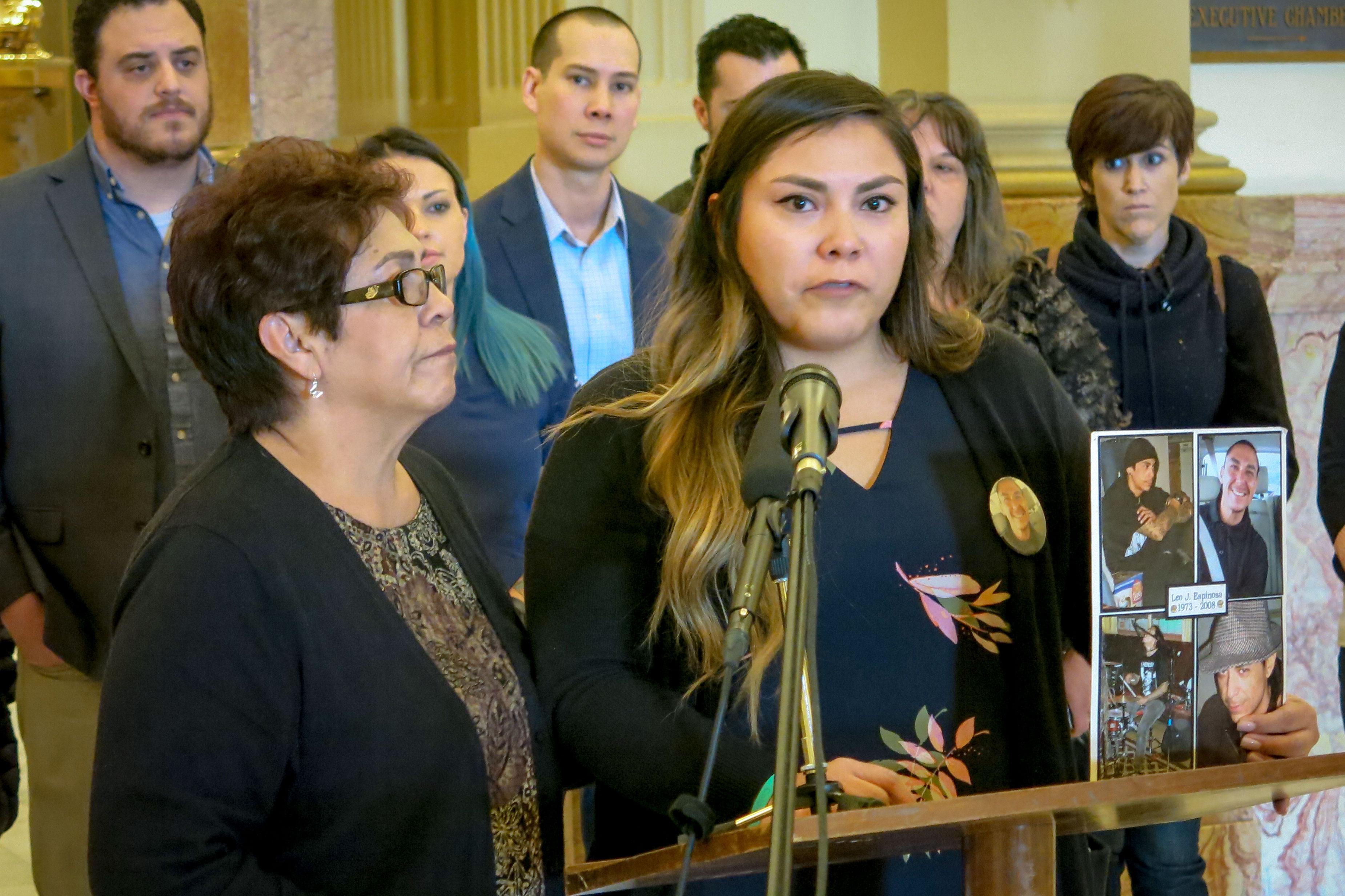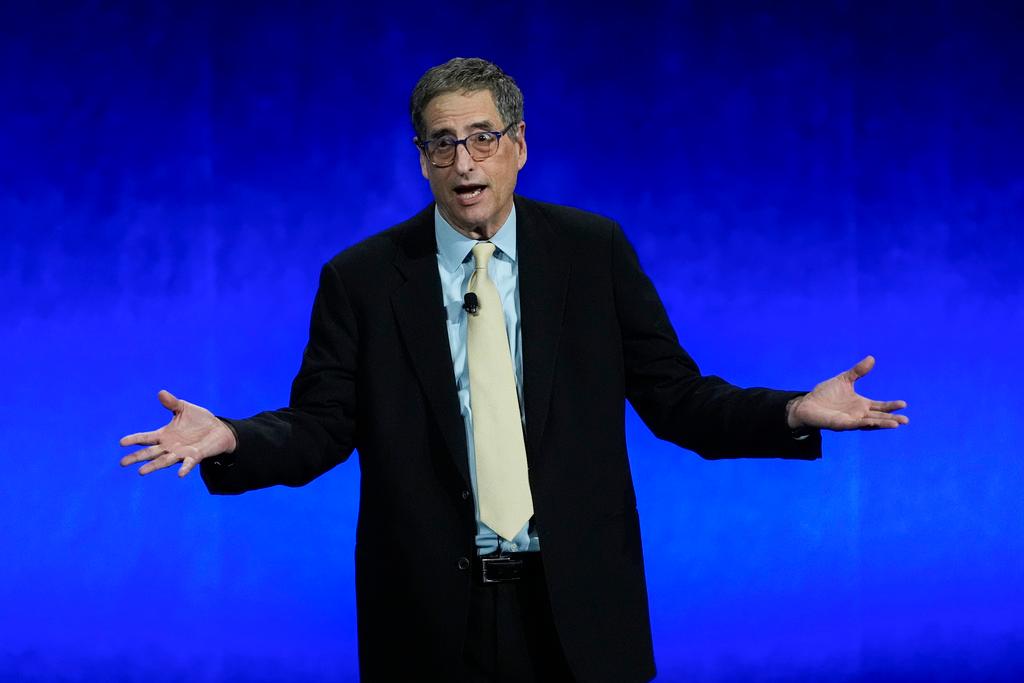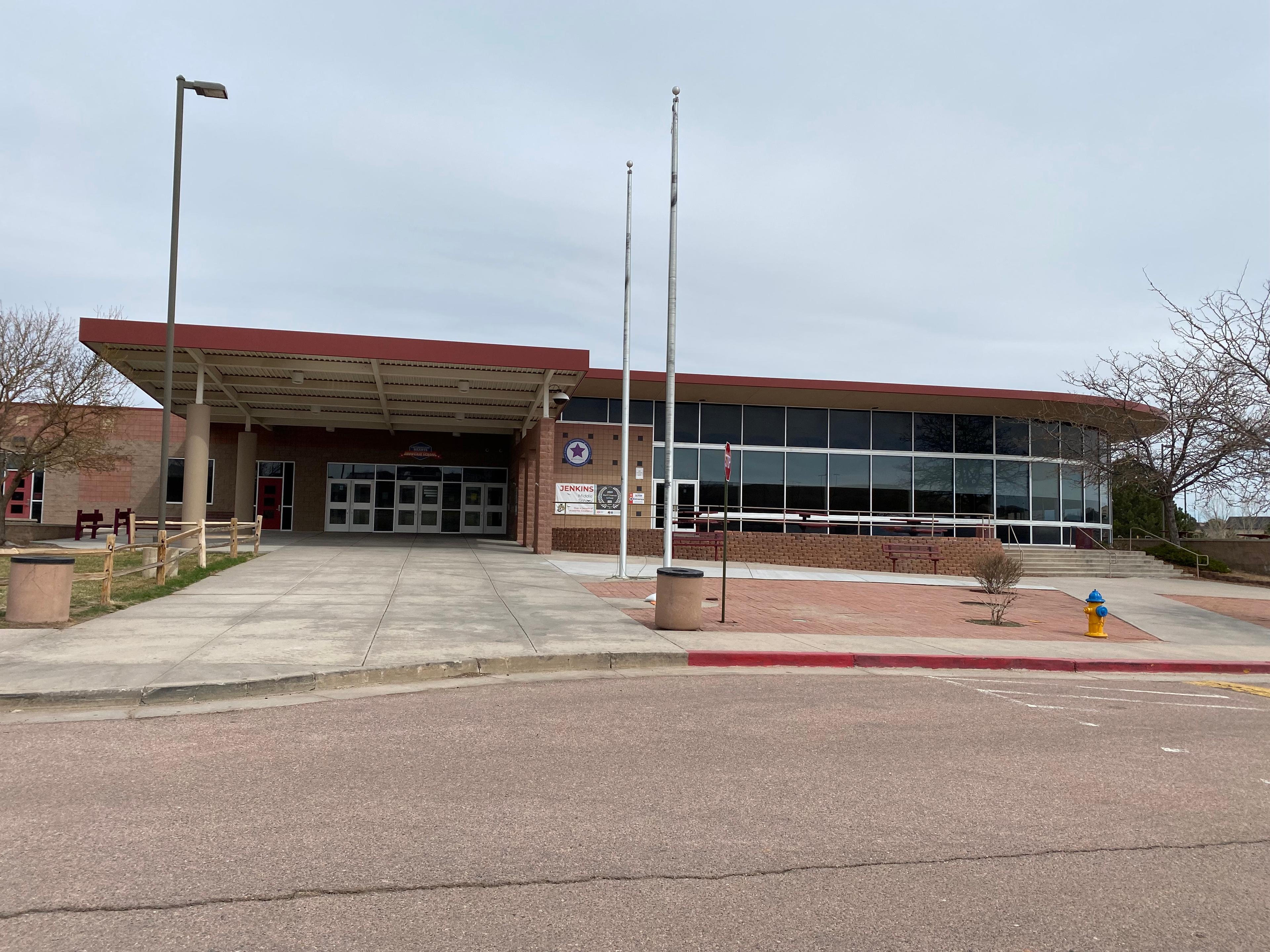

An effort to open the nation’s first supervised injection facility in Denver won’t happen this year after a key lawmaker said she won’t introduce a bill to allow the pilot program.
Democratic Sen. Brittany Pettersen cited the politics involved.
“Ultimately, I’m not willing to bring a bill that I don’t have a chance of passing,” said Pettersen,who has championed the issue of opioid addiction and pushed for more restrictive prescriptions and better access to treatment.
Her mother used drugs for more than 30 years. Pettersen said she doesn’t want other families to suffer, which is why she is so in favor of letting Denver set up a trial facility where people could inject drugs under medical supervision.
“I would be the last person in the world who would ever bring a bill that would increase use of the drug that devastated my mom’s life, my childhood,” Pettersen said. “You know, the tragedies that my family has gone through.”
Over the last two years there have been efforts at the state and Denver-city level to set up a safe injection site. The closer it came to reality, the louder the critics became, Pettersen said, especially on the right. She also didn’t have enough votes from her own party, who are in control of the legislature.
Pettersen “lost hope, day by day, as it continued to be a political target.” She lamented that the bill to authorize a site had “become the bright and shiny object to try to scare people even though it’s a bipartisan bill.”
Republican Sen. Kevin Priola was slated to cosponsor the measure with her. He saw a safe injection site as another tool to prevent fatal overdoses.
“As a pro-life Catholic, you know, I’m passionate about doing unto others and treating people with dignity and respect and promoting life,” he said.
Priola supports making it easier to dispose of drugs safely, stringent warnings on labels and the expansion e-prescriptions so it’s harder to doctor shop. “There needs to be a thousand different things that need to be looked at to tackle this epidemic,” he said.
Other Republicans were never sold on the concept of a safe injection site. Their belief was that it would make the problem worse and enable more drug use. House Minority Leader Patrick Neville floated the idea of recall elections to remove Democratic lawmakers from office if they voted to support the legislation. In early February, the Colorado Republican Party sent out an email that called safe injection sites an oxymoron.
“There are no heroin injection sites in the United States and we don’t need the first to be here in Colorado,” stated GOP Chairman Jeff Hays. He added that House and Senate Republicans would take a stand against any potential bill. “A policy that incentivizes self-destructive behavior and increases the number of overdose deaths is the opposite of compassionate.”
Local conservative talk radio also played an active role in opposition.
KNUS talk show host Peter Boyles visited Vancouver to see the impact of a facility there and created a “No Safe Sites,” webpage, part of an effort to derail a potential Denver program. “This is so dangerous and so frightening and the cost is so expensive,” Boyles said.
Republican political consultant Dick Wadhams credits his party’s loud opposition for stopping the legislation before it even started. “A few weeks ago that might have sailed through the legislature onto the governor’s desk,” he said. “I think several Democrats are having second thoughts now about the consequences of voting for that legislation.”
Tough politics weren’t the only hurdle. After Denver City Council approved a pilot program last fall, the Colorado’s U.S. Attorney and its Drug Enforcement Administration field office warned the site would be illegal under federal law. The threat shouldn’t be considered empty as Philadelphia’s attempt at a similar facility has been challenged by federal prosecutors.
Support from Denver’s Mayor also softened.
“It doesn’t look like the state is going to do anything with it this session,” said Mayor Michael Hancock last week. “And once you get over that hurdle you recognize you’ve got a very serious federal hurdle to get over. At this point in time, I don’t see it, it’s a mute issue in the city of Denver.”
While both sides in this debate can point to research to back their views, the science is still developing.
Some of those hit hardest by the opioid epidemic say they’re not giving up. Lisa Raville, the director of Denver’s needle exchange program at the Harm Reduction Action Center, said the status quo won’t work because “people in our communities are dying, and not only are they dying of overdoses, they’re dying of public overdose.” At recent safe injection site advocacy event, Helen Alvillar told the story of her son Leo. He was 34, a father of two and died of an accidental drug overdose on a friend’s bathroom floor.
“What were the last minutes of his life like? I can’t let myself go there,” she said. “No one should lose their life alone, in a bathroom.”
It is Alvillar’s belief that her son and others could still be alive if Denver had a place for drug users to inject under medical supervision. While debate at the state level will wait for at least another year, lawmakers have proposed other measures to confront opioid addiction. Ideas range from funds for recovery support services, improved warning labels, the creation of a standard for sober living facilities and steps to ensure doctors don’t have financial incentives for prescriptions of any kind.









